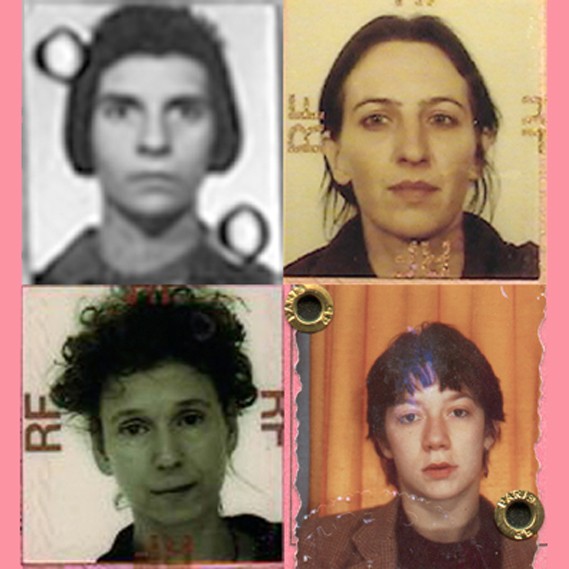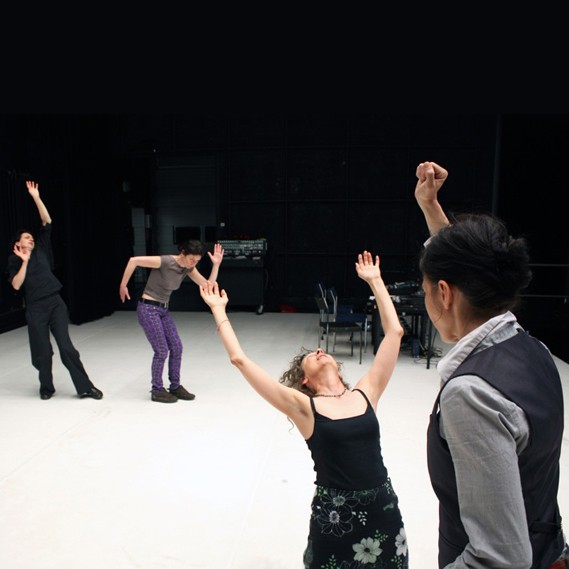Numéro d'objet
A “numéro d'objet” (“object number”) is the administrative term used to register a performing arts show. With this new work, Mickaël Phelippeau has chosen to move from the object to the subject as a means of grasping the construction of a dance piece, starting with its subjective components: memories, as well as the individuals shaping the parallel narrative of an artistic project. Beyond his/her “number” or “role,” a dancer is the guardian of a sensory experience. But, what exactly? Where is the line between interpreter and author, between composer, designer, and the performer embodying them? To answer these questions, Mickaël Phelippeau brought together four dancers: four women who began their careers in the 1980s, experienced different eras and styles, each one affirming a singular position, a perspective on their own history, the choreographers with whom they had worked, the music, words, and the desires that had accompanied them.
Numéro d'objet is built upon a foundation of constantly redefined constraints and intersecting dance scores, all of which are redirected or mistreated. It follows these paths and drafts an inventory of a life spent with choreographic creation. In an atmosphere oscillating between the rehearsal studio, the backstage area, and sociological inquiry, the four performers discuss, question one another and sing, reproducing the stages of their work, slowly weaving together these different strands. While striding across the stage like a map in motion, navigating fragments of past repertoires into current reinterpretations, they form duos and follow playful procedures, as if they were imagining a dance at age 90. Mixing past, present, and future, they alternate roles, direct, guide, and comment on one another. Little by little, the space is filled with murmurs: voices mingle, generations answer one another and intertwine. Through these tender and caustic portraits, Numéro d'objet shows the kitchen in which a show is cooked up, like a recipe using multiple ingredients: layers of text, interviews, games, and phantom gestures, all of which create an historical and intimate backdrop where a collective imaginary of dance implicitly appears.
- Gilles Amalvi for the Rencontres chorégraphiques internationales de Seine-Saint-Denis 2011 Festival
in Les Rencontres chorégraphiques internationales de Seine-Saint-Denis Festival
The premiere took place on May 27th 2011 at Théâtre de Montreuil - Centre dramatique national, in the frame of Les Rencontres internationales de Seine-Saint-Denis
a choreographic piece by Mickaël Phelippeau
artistic collaboration and performing Valérie Castan, Claire Haenni, Sabine Macher, Pascale Paoli
sound design Éric Yvelin
light design Benjamin Boiffier
acknowledgments Garance Crouillère, Nathalie Elharrar, Chiara Gallerani, Frédéric Pérouchine, Aurélien Richard, Marcela Santander, Cécile Tonizzo
and
Georges Appaix, Alain Buffard, Alexis Forestier, Daniel Larrieu, Mathilde Monnier, Jacques Patarozzi, Eszter Salamon
executive producer bi-p association
coproduction Centre national de danse contemporaine – Angers, Centre chorégraphique national de Montpellier Languedoc-Roussillon, in collaboration with the program nature sensible - résidences d'artistes en lycées agricoles, Rencontres chorégraphiques internationales de Seine-Saint-Denis, Théâtre de Vanves
Scène nationale d’Orléans, TNT – Bordeaux
with the support of DRAC Centre - Ministère de la Culture, Conseil régional de la région Centre, Adami
residency Volapük – Tours, Halle aux Cuirs – La Villette – Paris, Les Moulins de Paillard - Poncé sur le Loir
with the help of Studio 129 Daniel Larrieu – Paris, Arcadi in the frame of plateaux solidaires, Ménagerie de Verre in the frame of Studiolab – Paris
Création 2011
2013
TNT - Bordeaux, FR
Nouveau Théâtre de Montreuil in the frame of Les Rencontres chorégraphiques internationales de Seine-Saint-Denis, FR - premiere
Le Quartz - scène nationale de Brest, FR
la Scène nationale d'Orléans, FR
2012
Halle aux grains - scène nationale de Blois, FR

